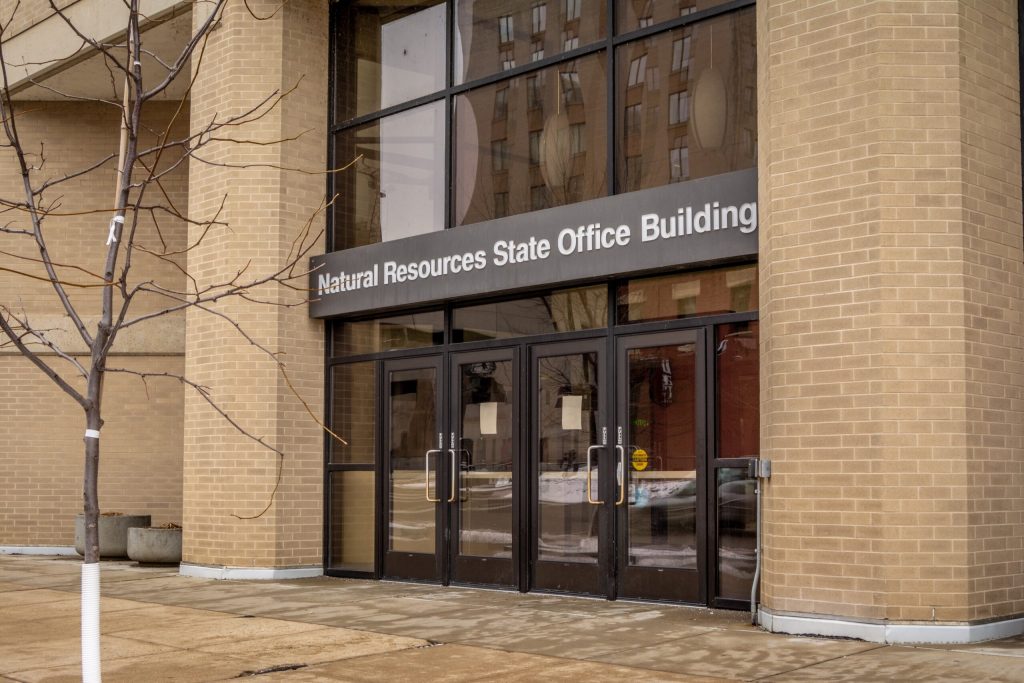DNR Has Seen 500 Positions Cut Since 2003, Says It Is Causing Delays
Loss of 20 vacant positions is latest in a long-term trend, leaders say.
The Wisconsin Department of Natural Resources has lost 500 positions over roughly two decades, leading to slower permitting times and loss of capacity for habitat management. The head of the agency’s board called the decline a “slow, insidious loss of resources.”
Bill Smith, chair of the Natural Resources Board, said at the board’s Wednesday meeting that the steady loss of positions combined with inflation means less work being done to protect natural resources and the environment.
“The department is nothing more than a steward that takes care of your resources, your access to the outdoors, your health and welfare,” Smith said. “It’s being affected by this gradual and slow, insidious loss of resources. In very simple terms, every biennial budget, you are losing production (and) you’re losing work.”
Under the current state budget, the DNR is down 500 positions since the beginning of the 2003-05 biennium when it had nearly 2,975 positions, according to the Legislative Fiscal Bureau.
Maggie Hutter, the DNR’s budget director, informed the board that the Legislature eliminated 20.1 positions that had been vacant for more than a year as part of an update on the current two-year state budget.
“It means we’re not laying anybody off in order to cut those positions, but it does mean work that we can’t do going forward,” Hutter said.
At the end of the current biennium in 2027, the agency will have nearly 2,474 full-time equivalent employees. The DNR is authorized to spend more than $1.25 billion under its budget.
Since 2003, the agency has seen large cuts under Democratic former Gov. Jim Doyle and Republican former Gov. Scott Walker. The DNR lost 256 positions under budgets approved by Doyle and around 200 positions under budgets during Walker’s tenure.
The office of Senate Majority Leader Devin LeMahieu, R-Oostburg, noted the DNR requested the elimination of 46 positions. Those positions had a limited term and were primarily funded by the Bipartisan Infrastructure Law.
In a statement, LeMahieu didn’t address the loss of positions over time.
“Given the vast resources DNR has at its disposal, its requested reduction in position authority, and the fact that the 20.1 positions chairman Smith mentioned were vacant for more than one year, the reduction in position authority may be slow, but it’s hard to see how its insidious,” LeMahieu said.
Positions lost under the current budget were primarily in the agency’s environmental management division that works to protect the state’s air, lands and waters. Under the previous budget, Hutter said the agency lost 40 positions. Over the past two decades, the agency has seen staff reductions in every program.
“That can look like longer wait times for our permits. It can look like less habitat management. Our buildings might not be able to be replaced or maintained as well as we would like,” Hutter said. “Everything just falls incrementally more and more behind, and we do try wherever possible to find efficiencies … but we can only find so many.”
LeMahieu’s office said the agency should have requested additional positions or filled ones that remained vacant if the agency has seen permit backlogs or less building upkeep and habitat management.
As the agency operates with fewer staff, the DNR is also facing possible cuts to federal funding after Republican President Donald Trump proposed eliminating $1 billion in federal grants nationwide. Hutter said 30 percent of the agency’s budget came from the federal funding in fiscal year 2024.
It’s unclear what the DNR’s budget might look like as a dozen appropriations bills are working their way through Congress. While cuts might be less severe than Trump’s budget proposal, Hutter said the agency is limiting travel and being very careful about spending money.
Republican lawmakers have been consistently at odds with the agency over spending, including under the Knowles-Nelson Stewardship Program.
Gov. Tony Evers requested to fund the state’s land purchase program at $1 billion over the next decade, but lawmakers refused to authorize funding under the budget as the program is set to expire next year. GOP legislators have expressed concerns about the program adding to the state’s debt and taking private lands off the tax rolls. Legislation is pending that would fund the program at a reduced level and with more legislative scrutiny.
The Legislature’s Republican-controlled finance committee has also refused to release $125 million under a PFAS trust fund. GOP lawmakers are at odds with the agency over its authority to require cleanup of pollution under the state’s spills law. Under the law as written, they fear the DNR might force so-called “innocent landowners” to pay to clean up pollution they didn’t cause. GOP lawmakers have introduced bills to address PFAS contamination.
Hutter also noted that the budget didn’t include any increase in hunting or fishing license fees to address a looming $17 million shortfall in the state’s fish and wildlife account. Rather than increase fees, Republican lawmakers are transferring $30 million from the forestry account over the biennium. GOP legislators called for an audit of the account last year that’s due to be released this summer.
Wisconsin DNR has lost 500 positions since 2003, causing permitting delays was originally published by Wisconsin Public Radio.
If you think stories like this are important, become a member of Urban Milwaukee and help support real, independent journalism. Plus you get some cool added benefits.






















